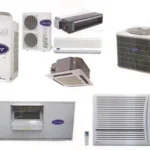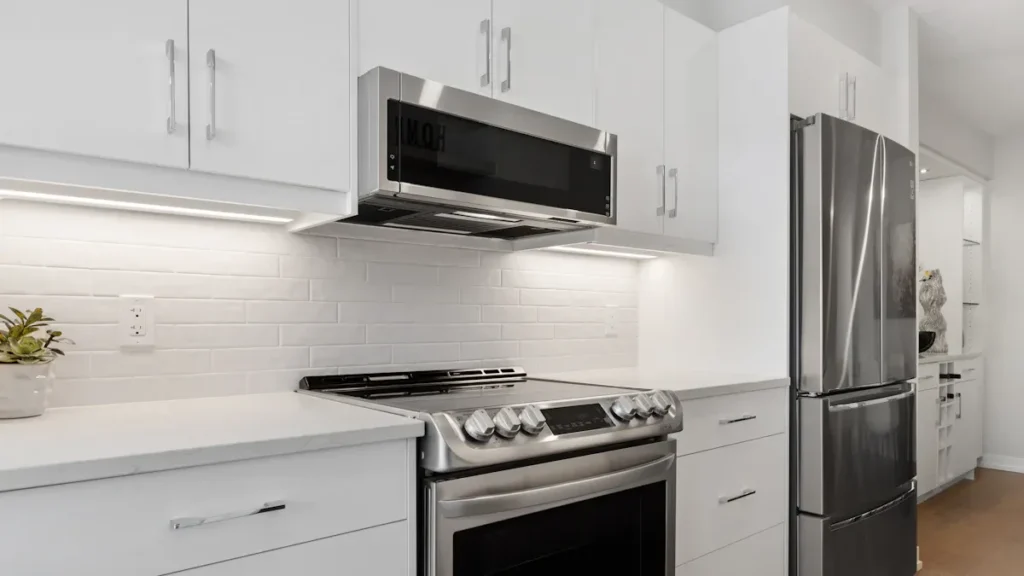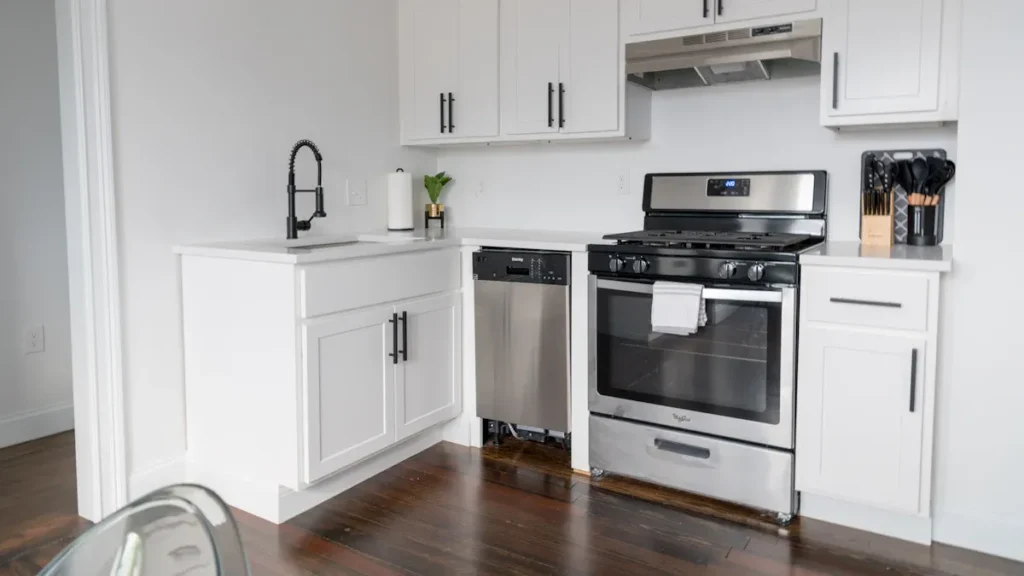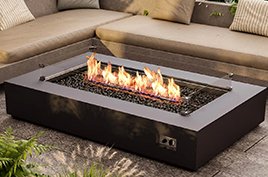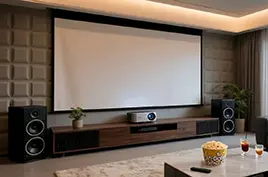If you want to cut your energy bills and help the planet, you probably wonder which works better: split vs window air conditioner. In 2025, split ACs take the lead in efficiency, especially when you cool larger rooms. You save money and enjoy steady comfort.
Caeli’s system removes refrigerants that harm the environment. It also greatly reduces energy use. This can lead to lifecycle emissions that are up to 80% lower than traditional systems.
Aspect | Impact on Costs and Emissions |
|---|---|
Energy Efficiency Ratings | Higher ratings lead to reduced electricity bills and lower environmental impact. |
Eco-friendly Refrigerants | Use of refrigerants with lower global warming potential reduces carbon emissions. |
Smart Technology | Enables better energy management, further reducing costs and emissions. |
Understanding AC Efficiency
What Determines AC Efficiency?
When you compare split and window air conditioners, you may wonder what makes one more efficient than the other. Several key factors shape how much energy your AC uses and how well it cools your space. Here’s a quick look at what matters most:
Factor | Description |
|---|---|
SEER Ratings | Higher SEER (Seasonal Energy Efficiency Ratio) means your AC cools more using less electricity. |
Lets your AC adjust its speed, so it doesn’t waste power turning on and off all the time. | |
Refrigerants Used | Modern options like R-32 cool your room with less impact on the planet. |
Proper Sizing of Units | An AC that fits your room size works better and saves energy. |
You will see that newer models, especially split air conditioners, often have high SEER ratings and inverter technology. These features help your AC run smoother and use less energy. Inverter air conditioner systems can adjust their speed to match your cooling needs. This helps prevent big spikes in your energy bill.
Modern refrigerants like R-32 also play a big role. They have a much lower global warming potential than older types, so you get strong cooling without harming the environment. If you pick the right size AC for your room, you avoid wasting energy and get better comfort.
Why Energy Efficiency Matters in 2025
You might ask, “Why should I care about energy efficiency in 2025?” The answer is simple: it saves you money, keeps you comfortable, and helps the planet. Let’s break it down:
New AC technologies use less energy but give you more cooling power.
As summers get hotter, you need an AC that won’t drive up your bills.
Energy-efficient models lower the strain on the power grid, especially during heat waves.
You get cleaner air inside your home, which can mean better health for your family.
Here’s a quick table to show how energy efficiency makes a difference:
Aspect | Impact on Energy Efficiency |
|---|---|
Reduces cooling loads | Your AC doesn’t have to work as hard, so you use less electricity. |
Lowers peak demand | Less stress on the grid means fewer blackouts and lower costs. |
Protects residents | Keeps your home safer and cooler, even if there’s a power outage. |
Choosing an energy-efficient AC, like a split air conditioner with inverter technology, means you spend less on electricity and help reduce pollution. You also enjoy quieter operation and steadier temperatures. In 2025, these benefits matter more than ever as energy prices rise and climate concerns grow.
Tip: Always check the energy label before you buy. Look for high SEER ratings and eco-friendly refrigerants. These features make a big difference in your comfort and your wallet.
Split AC vs Window AC – Direct Comparison
Energy Consumption
When you look at split vs window air conditioner options, energy consumption stands out as a big factor. Split air conditioner models often use inverter technology, which lets them adjust their power based on your cooling needs. This means they use less electricity over time. Window ACs can be efficient in small rooms, but they usually run at a fixed speed. If you want better energy efficiency, split air conditioners usually win, especially in bigger spaces.
Tip: Regular maintenance, like cleaning filters and checking for leaks, helps both types run more efficiently and last longer.
Cooling Performance
You want your AC to cool your room quickly and keep it comfortable. Here’s how split vs window air conditioner models compare on cooling performance:
Split air conditioners deliver strong and steady cooling performance, even in large rooms.
Window ACs work well in smaller spaces and can cool faster than portable units.
Both types offer good cooling performance, but split air conditioners keep temperatures more stable.
Window ACs tend to be quieter because most of their mechanical parts sit outside the room.
If you have a big living room or open space, a split air conditioner gives you better cooling performance and comfort.
Installation and Space Considerations
Installing a window AC is usually simple. You just fit it into a window and plug it in. Split air conditioners need professional installation, which takes more time and planning. They also need space for both an indoor and outdoor unit. If you rent or move often, a window AC might be easier for you. But if you want a cleaner look and don’t mind a little extra work, a split air conditioner fits well in most homes.
Cost Analysis
Let’s talk about money. Window ACs cost less upfront and are easy to install. Split air conditioners cost more at first, but they save you money over time with better energy efficiency and lower bills. If you want long-term cost savings, a split air conditioner is a smart choice. Remember, the size of your room and how often you use your AC will affect your total costs.
Note: Good installation and regular maintenance help both types work better and last longer. Always match your AC to your room size for the best results.
Regional Considerations
Popular AC Types by Region
You might notice that air conditioner preferences change depending on where you live. In North America, Carrier Global leads the market, while Daikin Industries has a strong global presence. In China, Gree Electronics and Midea are top choices. Here’s a quick look at the most popular brands and their market share:
Brand | Annual Revenue (Billion $) | Market Share (%) | Region |
|---|---|---|---|
Daikin Industries | 36.3 | 20 | Global |
Gree Electronics | 29.2 | 13.8 | China |
Carrier Global | 20.4 | 17 | North America |
Midea | N/A | 16.5 | China |
You’ll find different AC types in homes and businesses:
Window Air Conditioners
Split Air Conditioners
Central Air Conditioning Systems
Hybrid Air Conditioners
Split ACs are gaining popularity because they offer zonal cooling and fit modern climate goals. Window ACs remain common in older buildings and urban areas due to their easy installation.
Local Energy Prices and Efficiency Impact
Energy costs can change how you choose your air conditioner. If electricity prices are high in your area, you’ll want a system that saves you money over time. Local regulations also play a big role. For example, in the U.S., SEER2 standards differ by region. The Department of Energy divides the country into North, South, and Southwest, each with its own rules. After 2025, new air conditioners must meet stricter requirements, with minimum ratings over 17 SEER for most homes.
Factor | Impact on Savings |
|---|---|
Local electricity costs | Varies savings potential |
Cooling hours per year | Influences overall efficiency |
Home insulation and duct design | Affects performance and savings |
Tip: If you live in a region with long, hot summers, investing in a high-SEER split AC can boost your energy efficiency and lower your bills.
Climate Considerations
Climate shapes which AC works best for you. In hot climates, higher SEER ratings help keep costs down. Multi-zone systems, like mini-splits, let you cool different rooms based on your needs. Window ACs work well in older buildings and urban settings, especially if you want something affordable and easy to install.
Here are some recommended models for different climates:
Model | Type | Key Features | Suitability |
|---|---|---|---|
LG 7,000 BTU Portable AC | Portable | Removes 2.75 pints of moisture/day | Humid climates |
LG 8,000 BTU Smart Portable | Portable | Smart WiFi, removes 3.09 pints/day | Humid conditions |
LG 23,000 BTU Window AC | Window | Heating/cooling, covers 1400 sq ft | Hot and dry climates |
If you want personalized control and better comfort, split ACs with multi-zone features are a smart choice. Always consider your local climate and building design before you decide.
Practical Tips for Choosing the Right AC
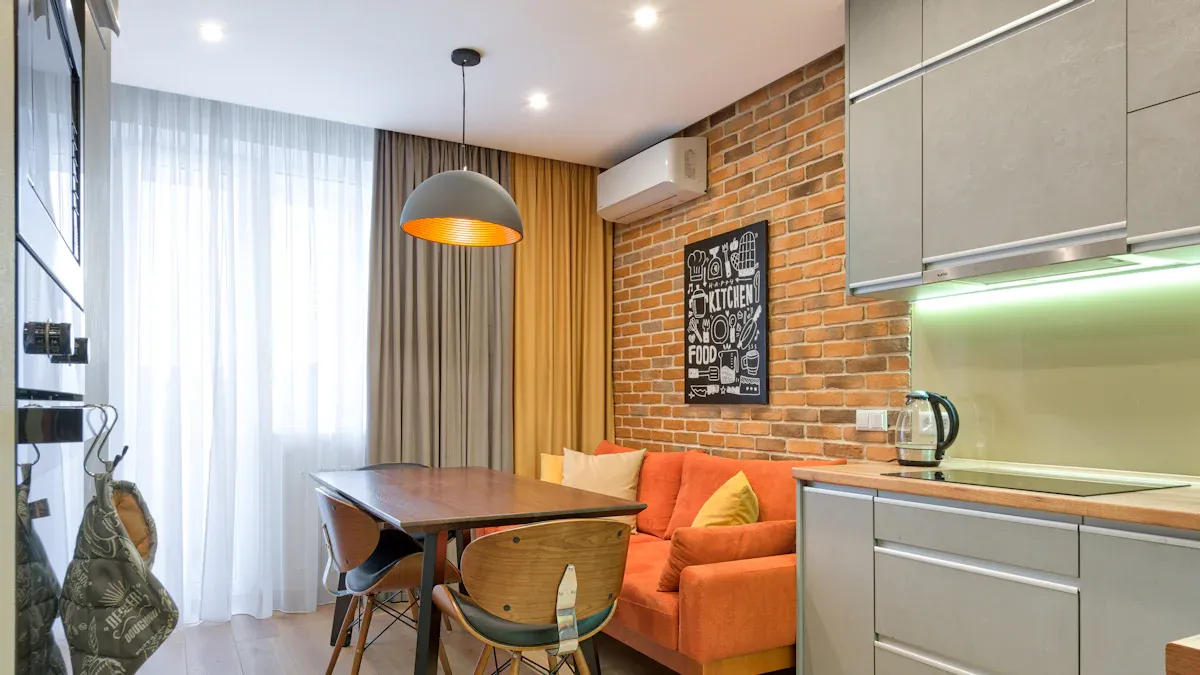
Match AC type to room size and lifestyle
Choosing between a split air conditioner and a window unit depends on your space and how you use it. You want the best cooling performance and cost savings, so think about your daily routine and room size.
Split air conditioners give you localized control. They work best in larger rooms or spaces where people come and go.
Window ACs fit smaller rooms or places with steady use.
Many people now prefer single-room air conditioners. This trend helps you save energy by cooling only the spaces you use.
If you compare split vs window air conditioner options, always match the unit to your needs. You get better comfort and avoid wasting energy.
Look for inverter technology for long-term savings
When you shop for an air conditioner, check if it uses inverter technology. This feature makes a big difference in your energy bills and comfort.
Inverter air conditioner models adjust their speed and airflow to match your needs.
They avoid the constant on/off cycles that waste power in older systems.
You get lower energy use and more cost savings over time.
With an inverter air conditioner, you enjoy steady cooling performance and quieter operation. Your home stays comfortable, and your wallet thanks you.
Check energy labels and certifications
You want to make sure your new AC is truly efficient. Always look for energy labels and certifications before you buy.
ENERGY STAR certification means the unit meets strict energy efficiency standards.
The ENERGY STAR label uses the Integrated Energy Factor (IEF) to measure efficiency.
Check the Clean Air Delivery Rate (CADR) for air quality performance.
Energy efficiency ratings, like SEER, show how much electricity your AC uses for the same cooling output. A higher SEER rating means more cost savings and better cooling performance.
Consider smart control systems for efficiency
Smart features can help you get the most from your split air conditioner or inverter air conditioner. These systems give you more control and help you save money.
Feature | Benefit |
|---|---|
IoT Sensors | Predictive maintenance and real-time monitoring. |
AI and Wi-Fi Connectivity | Learns your habits, adjusts settings, and allows remote control. |
Zoned Systems | Lets you cool only the rooms you use, boosting cost savings. |
Real-Time Energy Savings Display | Shows you how much energy you save and helps you optimize usage. |
You can also get alerts for maintenance and monitor your system’s performance in real time. These smart tools help you avoid breakdowns and keep your AC running at peak efficiency.
Tip: Smart control units give you real-time insights into your energy use. You can make quick changes and see instant results in your cost savings.
You want the best value for your home. Split ACs usually give you higher efficiency in 2025. Before you choose, think about your room size, budget, and local climate. Upgrading to a 15.2 SEER2 system can save you money and help the planet. Check out these long-term benefits:
Benefit | Impact |
|---|---|
Lower utility bills | Substantial energy savings |
Smaller carbon footprint | 4,000–6,000 lbs CO₂ cut |
You enjoy steady humidity.
Your AC runs quietly.
You avoid big temperature swings.
You get comfort, savings, and a cleaner environment—all in one package.
FAQ
What is the main difference between split and window ACs?
You get two separate units with a split AC—one inside, one outside. A window AC combines everything in one box that fits in your window. Split ACs usually cool larger spaces better.
Can I install a split AC myself?
You should call a professional for split AC installation. The process needs special tools and skills. DIY installation can void your warranty or cause leaks.
Which AC type is quieter?
Split ACs run much quieter. The noisy compressor sits outside your room. Window ACs can be louder since all parts stay in your window.
How do I know what size AC I need?
Measure your room in square feet.
Check the AC’s BTU rating.
Use this table for a quick guide:
Room Size (sq ft) | BTUs Needed |
|---|---|
Up to 150 | 5,000 |
150–350 | 8,000 |
350–550 | 12,000 |
Do inverter ACs really save money?
Yes! Inverter ACs adjust their speed to match your cooling needs. You use less electricity and see lower bills over time. You also get more stable temperatures.




